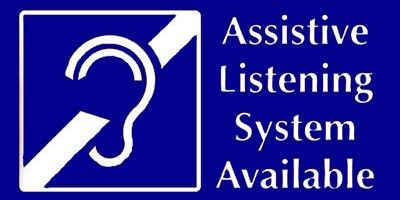Better Hearing and Speech Month

May is Better Hearing and Speech Month, and it’s as good a time as any to reflect on what hearing means for you, your loved ones and those around you.
It's an odd request, I know, to ask people to take stock of the importance of a sense that most of us take for granted - unless, of course, you happen to be among the one fifth of the population that has hearing losses severe enough to impact daily communication. In that case, I don't need to tell you how life-changing hearing loss can be. As Helen Keller once said, "Blindness separates people from things; deafness separates people from people."
People who lose their ability to hear also lose the ability to interact with the world around them. Hearing aids and cochlear implants may help, but not everyone can afford hearing aids, and not everyone will be a candidate for cochlear implants. And losing one's hearing isn't just about missing out on interpersonal communication that impacts your quality of life. It's also about being able to take in the latest theater performance, movie showing, lecture at your favorite museum or gallery, or local town meeting.
Being unable to hear also may affect a person's health and safety. If someone can't hear the doorbell, they may miss vital in-home services. If they choose to leave the door unlocked so as not to miss visitors, they are at risk at the other extreme, because anyone can enter their home. If the fire alarm or carbon monoxide detector are activated, how can a sleeping person who has taken their hearing aids out hear those alarms in order to escape with their lives?
Myriad technologies are readily available to address these and other issues, but few people know about them. These technologies include various types of hearing aids; amplified and captioned telephones; radio frequency, Bluetooth and infrared listening systems; specialized fire and carbon monoxide systems; environmental alerting systems; mobile and video communication tools; and more.
The Massachusetts Commission for the Deaf and Hard of Hearing (MCDHH) is a state agency under the Executive Office for Health and Human Services that can help to provide individuals in Massachusetts with information, referrals and technical assistance in all of the above areas and more.
MCDHH also offers free in-service presentations to hospitals, medical facilities and offices; libraries; councils on aging; independent and assisted living facilities; schools and universities; police and fire departments; and more. We do this so that business and community leaders can learn how easy it is to be in compliance with federal nondiscrimination and accessibility statutes.
There is never a charge for MCDHH services. Please contact Jonathan.Odell@massmail.state.ma.us for more information. We look forward to (no pun intended) hearing from you!
- Written by Jonathan O’Dell, Communication Access, Training and Technology Services for the Massachusetts Commission for the Deaf and Hard of Hearing




